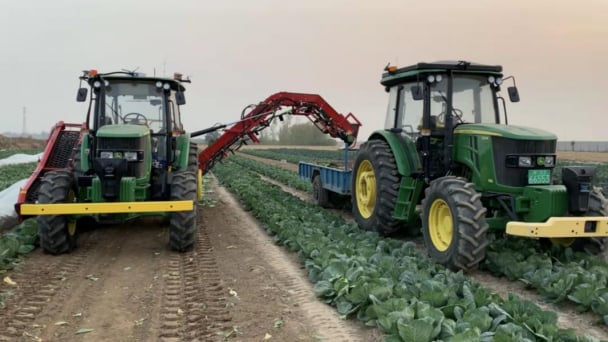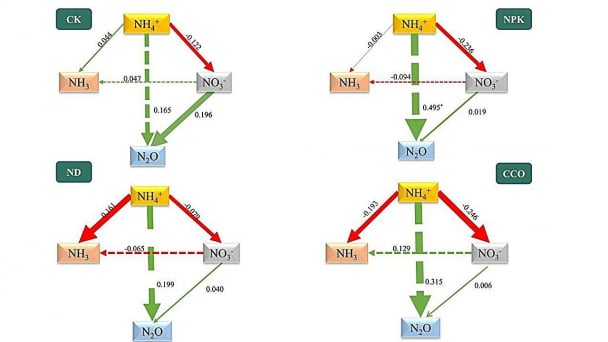June 30, 2025 | 02:08 GMT +7
June 30, 2025 | 02:08 GMT +7
Hotline: 0913.378.918
June 30, 2025 | 02:08 GMT +7
Hotline: 0913.378.918
The law will require companies to produce a due diligence statement proving that their supply chains are not contributing to the destruction of forests before they sell goods into the EU - or they could face hefty fines.
"I hope that this innovative regulation will give impetus to the protection of forests around the globe and inspire other countries at the COP15," said the European Parliament's lead negotiator, Christophe Hansen.
Deforestation is a major source of greenhouse gas emissions that drive climate change and will be in focus at a UN COP15 conference this week, where countries will seek a global deal to protect nature.
Negotiators from EU countries and the European Parliament struck the deal on the law early on Tuesday.
It will apply to soy, beef, palm oil, wood, cocoa and coffee and some derived products including leather, chocolate and furniture. Rubber, charcoal and some palm oil derivatives were included at the request of EU lawmakers.
Companies would need to show when and where the commodities were produced and "verifiable" information that they are deforestation-free - meaning they were not grown on land deforested after 2020.
They must also show that the rights of indigenous people were respected during production of the goods.
Failure to comply could result in fines of up to 4 per cent of a company's turnover in an EU country.
EU countries and its Parliament will now formally approve the legislation. The law can enter into force 20 days later, although some of the rules come into force for 18 months.
EU member nations will be required to carry out compliance checks covering 9 per cent of companies exporting from countries with a high risk of deforestation, 3 per cent from standard-risk countries and 1 per cent for low-risk countries.
Countries including Brazil, Indonesia, Colombia and Malaysia have criticised the EU plan, warning that the rules will be burdensome and costly.
EU environment commissioner Virginijus Sinkevicius told Reuters on Monday he had visited or spoken with the governments concerned by the law, and the EU would work with countries to help build their capacity to implement the rules.
Biodiversity talks open as UN chief calls for 'peace pact' with nature
High-stakes biodiversity talks opened in Montreal on Wednesday (Dec 8), amid calls for a "peace pact with nature" to save the planet's species and ecosystems from irreversible human destruction.
Delegates from across the world gathered for the Dec 7 to Dec 19 meeting to try to hammer out a new deal for nature: A 10-year framework aimed at saving Earth's forests, oceans and species before it's too late.
"It's time for the world to adopt an ambitious biodiversity framework - a true peace pact with nature - to deliver a green, healthy future for all," UN chief Antonio Guterres told reporters.
Inger Andersen, head of the UN Environment Programme (UNEP), urged negotiators to land a strong framework for nature. "Nature and biodiversity are dying the death of a billion cuts and humanity is paying the price for betraying our closest friend," she said.
The Ukraine conflict cast a shadow over early exchanges.
Representatives from the European Union and New Zealand, also speaking on behalf of other countries including the United States, slammed Russia for the environmental destruction brought about by its invasion.
Ukraine has said tens of thousands of dead dolphins have washed up on the Black Sea, blaming military sonar used by Russian warships for the disaster.
Russia's representative fired back that the meeting was an inappropriate forum and accused its critics of hypocrisy for not raising previous conflicts - such as Iraq and Afghanistan - in the context of talks on nature.
Outside the downtown convention center where the talks were hosted, some 150 activists dressed in black demonstrated against what they called the hypocrisy of the summit, as riot police watched on.
(Reuters)

(VAN) In the suburbs of Beijing, there is an agricultural center spanning over 150 hectares dedicated to research, demonstration, and application of high-tech and precision agriculture.

(VAN) Researchers from the Institute of Applied Ecology of the Chinese Academy of Sciences have developed a new environmentally friendly fertilizer additive that significantly enhances crop yields while reducing emissions of harmful gases.

(VAN) Poultry production in Poland, which has only started recovering from devastating bird flu outbreaks earlier this year, has been hit by a series of outbreaks of Newcastle disease, with the veterinary situation deteriorating rapidly.

(VAN) Extensive licensing requirements raise concerns about intellectual property theft.

(VAN) As of Friday, a salmonella outbreak linked to a California egg producer had sickened at least 79 people. Of the infected people, 21 hospitalizations were reported, U.S. health officials said.

(VAN) With the war ongoing, many Ukrainian farmers and rural farming families face limited access to their land due to mines and lack the financial resources to purchase needed agricultural inputs.

(VAN) Vikas Rambal has quietly built a $5 billion business empire in manufacturing, property and solar, and catapulted onto the Rich List.